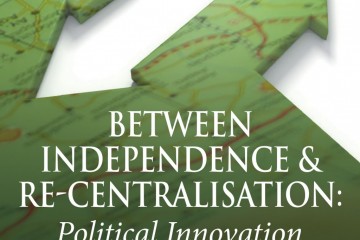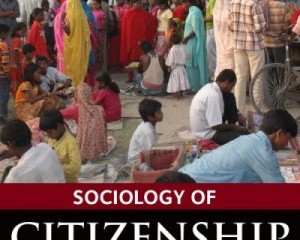
Is federalism a viable option in Spain?
The Spanish state has been suffering from a deep crisis for several years, as Basque and Catalan claims for the ‘right to decide’ have clearly illustrated. Thus, it’s hardly surprising that the federalist option has been rediscovered as a way to solve the problems of the ‘State of Autonomies’. Is federalism a realistic solution?
To answer this question, two aspects should be considered: 1) the potential of federalism as a solution to the specific problems linked to national pluralism; and 2) the viability of federal reform in Spain.
1. Federalism and national pluralism
Federal studies have been considerably revived over the last 20 years and have abandoned some of their former beliefs or convictions. Federalism is not a panacea for solving problems of national pluralism in democratic contexts. Nor is federalism is a project necessarily concerned with national diversity (see Seymour and Laforest 2001: 9-10). This renewal has been greatly motivated by the difficulties encountered in advanced democratic systems (Canada, Belgium, Spain, to give a few examples) to reconcile deep diversity with the specific demands of the democratic principle. That is what Carl Schmitt already referred to in 1928 (2003: 356) when he emphasized the necessity of (existential) cultural and political homogeneity to ensure the stability of federal states. Empirical evidence confirms the German jurist’s theory. The great majority of federations, including those which started with important cultural and political diversity, evolved towards a form of Unitarian federalism which, in its fundamental aspects, eventually adopted the shape of the dominant State, the Nation-State (one State, one people). Schmitt refers to this federal form as ‘the federal State without federal bases’ (2003: 368). In the most recent specialized literature calls this type of federalism ‘territorial federalism’, that is to say a way to organize the political power of a single people or nation from a legal and territorial point of view (otherwise known as a monistic theory of federalism; see Karmis and Norman 2005: 3-17).

The law of the forest and the freedom of the streets
The forest idea is not based on centre-periphery economies and spatial hierarchies, but on equitable networks of livelihood and exchange. It embodies many historic associations with freedom and social justice. ‘What the f*** do you think an English forest is for?’ raged Johnny ‘Rooster’ Byron, when served with a notice to move his caravan from its woodland clearing, in Jez Butterworth’s 2009 anti-Arcadian play, Jerusalem. The kids who come there, he claimed, are safer than at home. This is where the wild things are. The opening stage direction: ‘England at midnight’. Butterworth’s explosive ‘state of the nation’ drama raised many questions about the state of the nation. In a highly urbanised …

Devolution in the North of England: time to bring democracy and people into the debate?
In the wake of the Scottish independence referendum, the ‘English Question’ has gained new political traction, emerging as one of the most crucial issues underpinning the debate on the future of the Union. In spite of its result, the Scottish vote has certainly shed light, with a renewed emphasis, on the presence of a growing democratic deficit across and within the nations of the UK, and in particular in England. This, in turn, has triggered a new interest both within political elites and the wider society on the role and place that England should have in the context of an increasingly decentralised UK. For the for the first time, all the main traditional parties have overtly embraced the narrative of …

Secession and liberal democracy: the Catalan case
In Spain, the 1978 Constitution was the legal outcome of a political transition to a democracy, following the horrors of civil war and dictatorship. Among other things, it established a territorial model – the so-called “Estado de las Autonomías” (State of Autonomous Communities) – which was in principle designed to satisfy the historical demands for recognition and self-government of, above all, the citizens and institutions of two minority nations: Catalonia and the Basque Country. This territorial model occupies an intermediate position between the classic federal and regional models of comparative politics, but has more regional than federal features.
Yet thirty-six years later, many Catalan and Basque citizens and political and social actors show a deep disappointment regarding the development of this territorial model – in terms of collective rights, political recognition and self-government.
A movement for change
In recent years, support for independence has increased in Catalonia. Different indicators show that pro-independence demands are endorsed by a majority of its citizens, political parties and civil society organizations. This is a new phenomenon. Those in favour of independence had been in the minority throughout the 20th century. Nowadays, however, demands of a pro-autonomy and pro-federalist nature, which until recently had been dominant, have gradually lost public support in favour of demands for self-determination and secession. The following graph shows this recent trend.

Does the new Penguin edition of Magna Carta miss the point?
“No free man [homo liber] shall be seized or imprisoned, or stripped of his rights or possessions, or outlawed or exiled, or deprived of his standing in any other way, nor will we proceed with force against him, or send others to do so, except by the lawful judgment of his equals or by the law of the land,” says Chapter 39 of Magna Carta. It put King John under law. It should do the same to government now. And, with an eye to the future and interpreting even more deeply, those last two phrases might lead to law that comes from equals and law that begins with land, not the state. A phrase from chapter 7 of …

Questioning traditional citizenship: memory, identity and collective action in Chile
In this post I contest traditional liberal conceptions of citizenship rooted in the nation-state and consider the role played by memory in the ways in which Santiago de Chile’s disenfranchised produce contentious politics.
I suggest that, by referring to the past in their meetings and conversations, local neighbourhood organisations in Santiago de Chile’s poor settlements (poblaciones) assert a particular, anti-hegemonic interpretation of history. Through stories, historical anecdotes, and different types of memorials, poor residents produce a neighbourhood identity, giving rise to innovative forms of community membership.
Referring to the influence of the past in contentious politics in the favelas, James Holston has also proposed novel approaches that allow a rescaling of citizenship. In his book Insurgent Citizenship, Holston (2008) argues that history lurks below the surface of our porous present, sometimes leading to the eruption of movements that question historically entrenched regimes of urban citizenship. However, Holston does not explain precisely how this determining relationship between history and contentious mobilisation occurs. My ethnographic research in Santiago’s poblaciones explores this issue directly, examining the role of memory in the production and re-production of an identity of struggle.

The Cambridge Election Podcast
From the University of Cambridge comes ELECTION, a weekly politics podcast; asking the questions that no one else is in the run-up to the British General Election with the most interesting people inside and outside the political arena. Here below is the fifth podcast.

Book Review: ‘Patronage as Politics in South Asia’, edited by Anastasia Piliavsky
Patronage, which may be defined as a hierarchical relationship based on mutual obligations, is often regarded today as an unwelcome anachronism. Although this volume resists any single definition, the word ‘patronage’ reminds us of feudal and slave-owning societies of the past, where a few enjoyed the rights of citizenship at the expense of the many. Liberal democracies in our world have no place for patrons or clients, we believe, because universal adult franchise makes everyone legally equal and sovereignty rests with the demos.
Yet modern democratic societies face a peculiar paradox: they must elect representatives who enact laws and make policies even as they maintain the fiction that they are just like us. The paradox of modern democracy has little to do with the level of inequality in society. Neither is it specific to cultural contexts in which democracy appears to be compromised, even distorted, by patron-client relations. Patronage is everywhere, as this refreshing new volume argues, and its workings in India, the world’s most populous democracy, push us to think of citizenship as vertically differentiated or hierarchical.
There is a simple reason why the politics of patronage offends modern liberals. It strikes us as a perversion of a democratic ideal that treats all citizens, despite differences in income and wealth, as political equals. All are equally citizens in a democratic polity.









